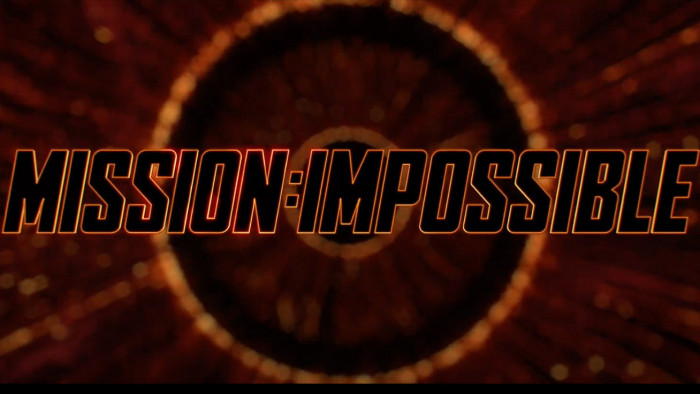Every time Tom Cruise should have died in Mission: Impossible, according to experts
Experts assess the moments in which Cruise (or at least his character, Ethan Hunt) would have struggled to survive


Tom Cruise is not human. That’s the only logical explanation for why he’s able to continuously push his body in ways mere mortals would typically deem impossible.
No, Cruise is clearly an otherworldly being. Over the last 20 years in the Mission: Impossible franchise he has insisted on performing his own, death-defying stunts, each one somehow managing to be even more dangerous than the last.
But, contrary to what you’re undoubtedly thinking - not everything he does on screen is strictly realistic. And films aren’t real.
With that in mind, and with the release of Mission: Impossible - Dead Reckoning Part One nearly here, we look back to the time we asked a number of experts to assess the moments in which Cruise (or at least his character, Ethan Hunt) definitely should have died.
Diving into the Water Torus
The film:
Mission: Impossible - Rogue Nation
The stunt:
After dropping about 30ft into a massive plughole, Cruise’s Ethan Hunt infiltrates an underwater power station and has to hold his breath for six ungodly minutes.
Expert analysis:
“This entire sequence would push any professional free diver beyond his or her limit due to the energy that has to be used in fighting the current and turbulent water,” says Wade Eastwood, Mission Impossible stunt coordinator.
“During the breath hold training both Tom and Rebecca (Ferguson, who plays Ilsa Faust) achieved very long stints, with Tom surpassing the 6-minute mark.
“I called cut on three or four shots as I thought he was blacking out for real, but he was in fact acting - true story!”
Chance of death: 75%
Above all else, this would appear to confirm that Cruise belongs to some sort of aquatic species. Saying that, Ethan does actually sort of drown in the film, but five minutes later he’s driving a car –because he’s Tom Cruise.
Bridge explosion
The film:
Mission: Impossible III
The stunt:
If you’re watching an action film and Tom Cruise isn’t running, it’s probably because he’s not in it. He is always running. He is probably running right now. For this particular scene, he’s running from an explosion that curiously launches him sideways into a car.
Expert analysis:
“The initial explosion is likely to cause thermal injury (burns) and probably traumatic injury from shrapnel, says Daniel Melhuish, Managing Director of Location Medical Services. “There’s a high risk of internal injury and broken bones from acceleration and deceleration (being thrown in the air and landing against the car).
Chance of death: 60%
Considering Cruise has to first clamber his way out of an upside down car before he can start running. It is likely that if he were a real human being, he would at least be unconscious and badly injured before even getting the chance to attempt this one. Not to mention the high chance of him being decapitated by a flying car door or something.
Motorbike crash
The film:
Mission: Impossible - Fallout
The stunt:
In an epic bike chase through the streets of Paris (he’s on the bike, everyone else is in cars, obviously), Ethan is brought to a sudden halt as he crashes and is flung several metres off his vehicle.
Expert analysis:
“It is always recommended to wear a helmet when driving a motorcycle,” says Gabby Frank, co-founder of Doctors on Set and Associate Professor of Medicine.
“Even though we see many patients survive motorcycle crashes, they more often sustain some kind of injury ranging from minor (scrapes, minor fractures) to severe (injury of major organs and head traumas).
Chance of death: 40%
According to Frank, this is perfectly survivable in real life, despite the possibility of sustaining permanent damage. The fact that Cruise just gets up and runs off like it was nothing more than a badly timed sliding tackle is by the by.
The bullet train chase and explosion
The film: Mission: Impossible
The stunt:
Probably the most phwoarrr-inducing stunt of the franchise comes from the very first instalment, in which Cruise scales the top of the Eurostar while it’s absolutely bombing it down the track. He then leaps from an exploding helicopter back onto the train, conveniently in time to some dramatic music. It is art.
Expert analysis:
“This stunt is incredibly dangerous if the train is going at any actual train speed,” says Susan Brion, Emergency Medicine Physician.
“If you’re traveling over 100 mph, pressure actually forces air out of your lungs, making it impossible to take a breath.
“In real life, Tom’s biggest risk would be from the blast. In this scene though, the greater risks would come from a secondary injury (objects flying through the air at high velocity). He’s unlikely to survive.”
Chance of death: 97%
Brion pretty much nipped that one in the bud there. To even consider that this would be possible is an act of lunacy.
Hanging onto the plane
The film:Mission: Impossible Rogue Nation
The scene:
If someone were to tell Cruise a plane was fully booked, he’d laugh in their face and say ‘there’s plenty of room on the outside!’ In Rogue Nation, he performed one of his craziest stunts ever when he dangled from the side of an Airbus 400 as it was taking off.
Expert analysis:
“The G force on take off was very high,” says Eastwood. “But Tom’s grip strength is very good and his ability to go into a slightly meditative mode definitely helped him maintain position until the plane levelled out.
“During the stunt we obviously had to have certain safety measures in place, but whenever Tom felt any form of ‘assist’ he would tell me to back it off so he was doing it and feeling it for real and not having to ‘act’ the forces that were being put on his body.
Chance of death: 85%
Based on Eastwood’s feedback, a normal human being would have been ripped from the side of the plane and sucked into the engine, causing the whole thing to explode and crash somewhere over Cheshire. Assuming you don’t have a Cruise-like superhero grip, you’re going to be in big trouble.
Skyscraper jump
The stunt: Mission: Impossible III
Cruise needs to get from one building to another and he can’t be bothered to use a door like a common Earth-walker, so he BASE jumps instead. When above his desired destination, he detaches his harness and falls several feet onto a glass ceiling.
Expert analysis:
“This scene is definitely a very dangerous stunt and involves many possible mechanisms of injury,” says Frank.
“Rapid acceleration followed by rapid deceleration could cause traumatic aortic injury/dissection, leading to rapid exsanguination (severe loss of blood) and death. It could also involve lesion to organs where harness is located.
“A fall from that height (appears to be at least 10 meters) and landing on his back could lead to not only to a spinal/vertebral injury, but also blunt trauma to chest and abdomen as well as within the retroperitoneum space.
“Further risks of falling through glass and penetrating injuries would likely be fatal.
Chance of death: 98%
By the sound of it, the fall onto the glass could have paralysed him, and with the ceiling being on a slope, his debilitated body would have been condemned to slide listlessly off the edge of the building before falling to a certain death.
Helicopter nosedive
The film: Mission: Impossible Fallout
The stunt:
Easily the most life-threating stunt Cruise performs in Mission: Impossible Fallout, it’s hard to believe he did this one unassisted, being only a novice helicopter pilot. In the scene, Ethan flies close to the ground and weaves between mountains, unafraid of dying a fiery death.
Expert analysis:
“This is very real and a slightly more extreme version of an ‘alpine descent’ or ‘spiral descent’ that is used by pilots when they need to lose altitude quickly,” says Eastwood.
“It can be a very dangerous manoeuvre if your instruments are not closely monitored as you run a very high risk of over-speeding the main rotor blades or over-torqueing them on recovery.
“Very experienced pilots who do this manoeuvre (the less extreme version) do not have to act as a character and look around for the ‘baddie’ etc. All they have to do is fly and watch instruments. This made the stunt very complex, dangerous and real.”
Chance of death: 75%
A lot to worry about here, like losing control of the copter, crashing and dying. The idea that Ethan would survive a crash is simultaneously ridiculous, hilarious and brilliant.
Motorbike collision
The film: Mission: Impossible II
The stunt:
When engaged in a game of motorbike chicken, the natural thing to do is drive at your enemy at full speed and then, at the last second, leap off and give them a bearhug in mid-air.
Expert analysis:
“Two bodies colliding directly at the speed implied would certainly cause trauma,” confirms Melhuish.
“Massive head injury, neurological injury to the spine or deceleration injury to any of the major internal organs or vessels would be high on the list of possible fatal injuries – survival would be down to luck and the exact speeds.”
Chance of death: 90%
Other human bodies don’t make the best crash mats, apparently. According to Melhuish, Cruise should have been horribly mangled here and at those speeds… probably dead. The villain too.
Climbing The Burj Khalifa
The film: Mission: Impossible Ghost Protocol
The stunt:
At the time, this was easily the most impressive real-life stunt in the Mission Impossible franchise. Cruise really did hang from the side of the Burj Khalifa, supported by just a few cables. In the scene, he has special sticky gloves that start malfunctioning, which isn’t ideal.
Expert analysis:
“A fall from that height would definitely be fatal,” says Frank.
Chance of death: 75%
What we’re talking about here is really a matter of technology, and we all know how electronics can let us down at the worst possible times. And on the basis that they do indeed fail in the film, lets assume that they’re likely going to fail and you’re going to plummet.
HALO jump
The film:Mission: Impossible Fallout
The stunt:
A sequence like this would typically be saved for the third act of a film, but in Mission Impossible: Fallout it’s nonchalantly placed towards the beginning. The fact that Cruise actually did this High Altitude Low Open jump for real is enough to make us think we should at least go for a walk today.
Expert analysis:
“Tom is the first ever actor to do a HALO jump in a movie for real”. This is a dangerous stunt as it requires skill and precision,” says Frank. A HALO jump involves altitude-related risks such as hypoxia, which could lead to loss of consciousness.
“A fall from height at high speed (landing of the jump) usually involves lesions related to axial load. In real life and with an uncontrolled situation, chances of survival are minimal.”
Chance of death: 80%
While this manoeuvre is practised on a daily basis by military units around the world – and Cruise was in fact trained for it – make no mistake, this one is very, very dangerous, whether it was done in a film or not.
Latest
Related Reviews and Shortlists


The 10 best war movies of the 21st century








